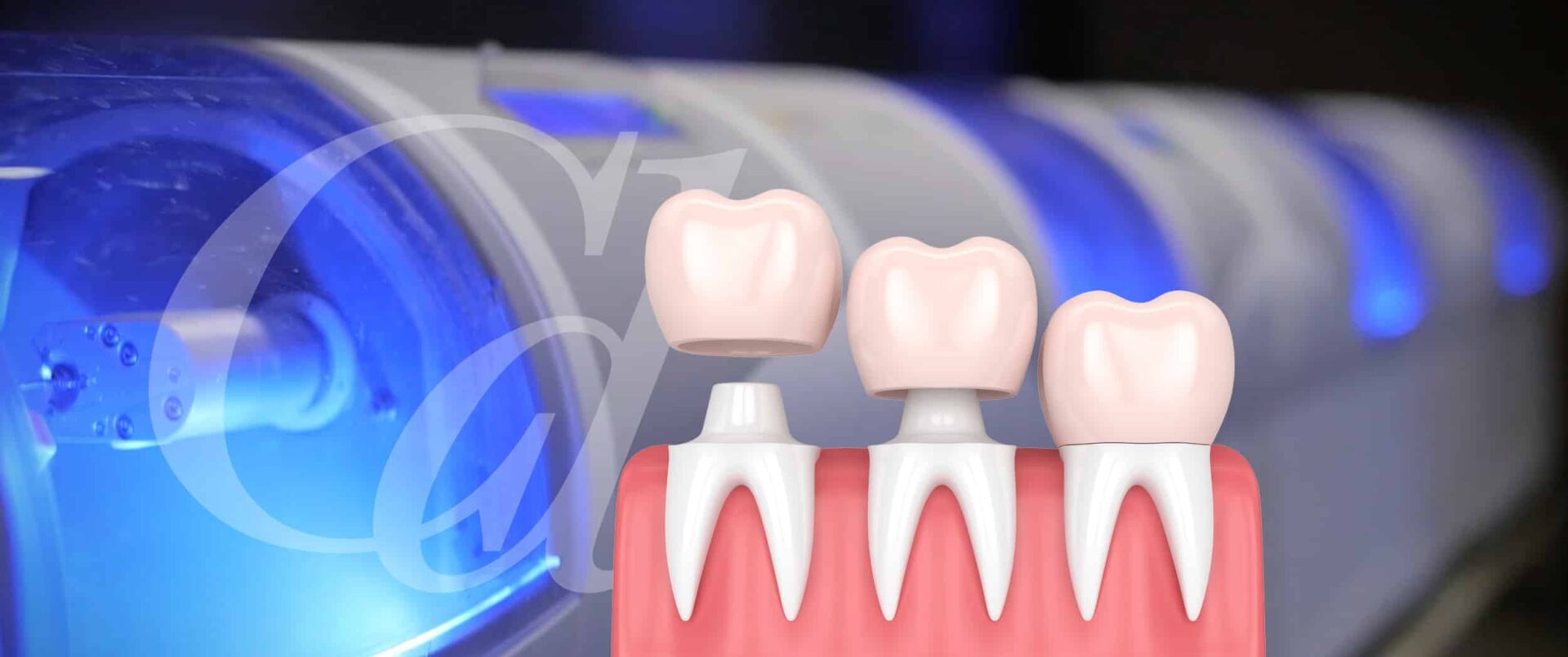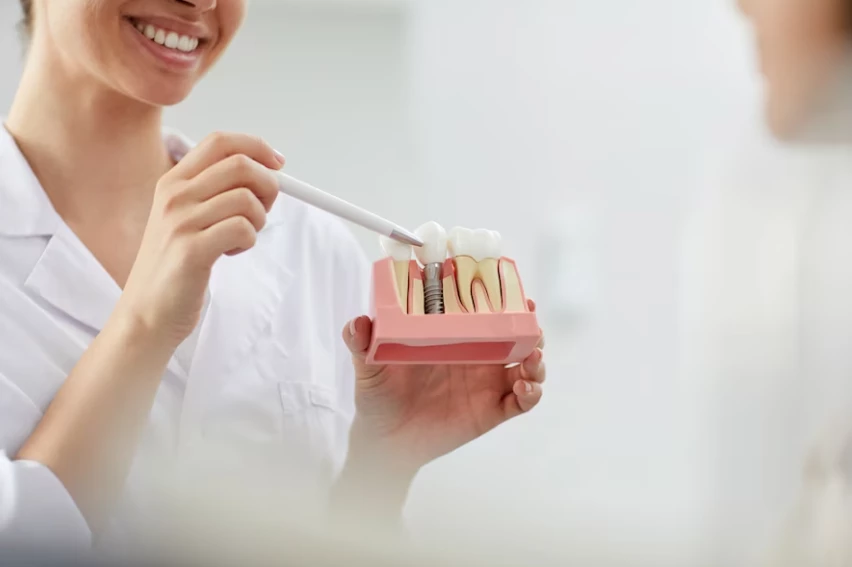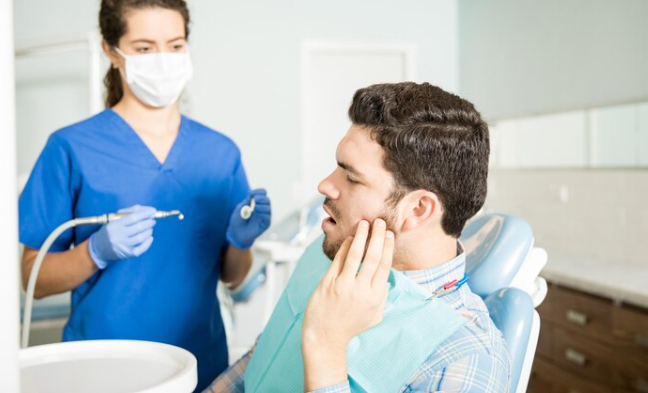Dental emergencies are not only painful but can also be emotionally distressing. Whether it’s a sudden toothache, a chipped tooth from an accident, or the aftermath of a dental injury, the psychological toll of a dental emergency can sometimes be as significant as the physical pain.
Visiting an emergency dentist to address these concerns is vital, not just for immediate relief but also for mental well-being. While dental care focuses on restoring oral health, it also has a profound impact on psychological well-being, providing emotional relief and restoring a sense of control.
How Does Visiting An Emergency Dentist Affect A Person Emotionally?
The emotions tied to a dental emergency are often multifaceted. The combination of intense pain, the unexpected nature of the situation, and the fear of potential outcomes can make visiting an emergency dentist a daunting experience. However, it’s essential to understand that seeking care can provide emotional relief and help manage the psychological impact of the situation.
- Pain and Anxiety: The most immediate emotional response to a dental emergency is pain, which can lead to heightened anxiety and stress. Severe dental pain can disrupt a person’s ability to focus on daily tasks, leading to frustration, irritability, and difficulty managing emotions. The anticipation of receiving care, combined with fear about the severity of the issue, can amplify the anxiety.
- Fear of the Unknown: Many people experience dental anxiety even in routine appointments, and the unpredictability of an emergency situation can increase those fears. Patients may worry about the need for invasive procedures, possible long-term consequences, or the cost of treatment. This fear can escalate when a person is in pain, as they may feel that the discomfort will only worsen or become more difficult to treat if delayed.
- Embarrassment or Self-consciousness: Dental emergencies, particularly those that involve visible issues like chipped teeth or swollen gums, can lead to feelings of embarrassment or self-consciousness. A person may feel ashamed about how their teeth look, which can be exacerbated by the urgency of seeking care. The emotional burden of these concerns can prevent people from immediately addressing their issues, even when they know they need help.
- Sense of Loss of Control: A dental emergency, especially if it occurs suddenly or unexpectedly, can make individuals feel like they have lost control over their situation. This sense of helplessness can contribute to feelings of frustration or despair, particularly when the emergency happens outside of regular office hours.
- Fear of Financial Burden: For some, the cost of emergency dental care can be an emotional barrier to seeking treatment. The fear of high dental bills, combined with the urgency of the situation, can create stress and anxiety. This may prevent people from seeking care right away, which can make the problem worse.
What Psychological Benefits Can Be Experienced After Seeking Emergency Dental Care?
While dental emergencies are stressful, the act of seeking professional help and receiving care has significant psychological benefits. Once a patient is treated by an emergency dentist, the emotional burden often shifts from anxiety to relief, and this can improve overall well-being.
- Relief from Pain: One of the most immediate benefits of seeing an emergency dentist is relief from dental pain. The discomfort caused by untreated dental issues, whether it’s a severe toothache or a broken tooth, can be overwhelming. After receiving treatment, many patients experience instant or rapid pain relief, which can significantly improve their mood and overall emotional state. The reduction in pain can allow for a clearer mind and the ability to engage in daily activities without constant distraction.
- Restoration of Control: Visiting an emergency dentist helps restore a sense of control over the situation. Taking proactive steps to resolve the problem—whether through a filling, root canal, or other dental procedures—helps patients feel empowered. The act of addressing the issue head-on allows individuals to regain control of their oral health and reduce feelings of helplessness or vulnerability.
- Reduction of Anxiety: The unknown is often the most terrifying aspect of a dental emergency. Once a patient receives a clear diagnosis and treatment plan, their anxiety levels tend to decrease. Knowing that there is a solution to the problem and that they are being cared for can provide emotional comfort and reassurance. This relief from uncertainty can lower overall stress levels.
- Improved Self-Confidence: Many dental emergencies affect the appearance of a person’s teeth, which can have a significant psychological impact. A chipped tooth, missing filling, or swollen gum can make individuals feel self-conscious, embarrassed, or even ashamed. After treatment, patients often experience an emotional boost as their smile is restored. Knowing that they have taken steps to fix the issue and restore their appearance helps to improve self-esteem and confidence.
- Improved Overall Mood: The combination of pain relief, restoration of control, and boosted self-confidence often leads to an overall improvement in mood. Patients who visit an emergency dentist report feeling less stressed, more optimistic, and less overwhelmed by the situation once their dental issue is addressed. This positive shift in mood can make a significant difference in their day-to-day life and overall mental health.
Why Is Immediate Dental Treatment Important For Mental Well-Being?
Immediate dental treatment is not just important for oral health—it is also essential for mental well-being. Delaying treatment for dental issues can exacerbate both the physical and psychological aspects of a dental emergency. Here’s why addressing the problem as soon as possible is so crucial for mental health:
- Prevention of Complications: Waiting to address a dental emergency can allow the issue to worsen, potentially leading to more complicated and expensive treatments down the line. For example, a small cavity left untreated could lead to a painful infection, requiring more invasive procedures like root canals or extractions. The uncertainty of an unresolved issue can significantly affect a person’s emotional state. Getting immediate care alleviates the worry of the problem worsening and offers peace of mind.
- Reduction of Stress: The longer a dental problem goes untreated, the more it weighs on a person’s mind. Prolonged discomfort and anxiety about the severity of the issue can create a significant emotional burden. Immediate treatment not only provides relief from pain but also minimizes the stress and anxiety associated with waiting for an appointment, worrying about the cost, or fearing further complications.
- Improved Coping Mechanisms: When a patient seeks immediate care, they begin to engage in healthier coping mechanisms. Instead of ruminating over the problem or avoiding the dentist out of fear or embarrassment, they are actively taking steps to address their health. This proactive approach to dental care encourages individuals to face their challenges head-on and fosters resilience, which can improve their overall mental outlook.
- Prevention of Negative Thought Patterns: Unresolved dental issues can lead to negative thought patterns that affect mental health. Constantly worrying about the dental problem can lead to feelings of helplessness, frustration, or even depression. Immediate treatment allows patients to move past these negative cycles, focusing instead on recovery and restoration.
Can Untreated Dental Emergencies Lead To Long-Term Psychological Effects?
Yes, untreated dental emergencies can lead to long-term psychological effects, especially if they are allowed to progress or remain unaddressed. The mental toll of chronic pain, unresolved dental issues, and the emotional burden of neglecting one’s health can have lasting consequences.
- Chronic Stress: Dental emergencies left untreated can lead to chronic stress. Whether it’s a toothache that never fully goes away or a damaged tooth that causes difficulty with speaking or eating, ongoing oral discomfort creates a constant underlying source of stress. Over time, this can affect mental health, contributing to heightened anxiety, mood swings, and difficulty coping with other life stressors.
- Social Isolation: Dental problems that affect a person’s appearance, such as broken or missing teeth, can lead to social isolation. Many people avoid social situations because they feel embarrassed about their smile or worried about the impact their dental issues may have on how others perceive them. This avoidance can lead to feelings of loneliness and depression, further exacerbating the psychological effects of untreated dental emergencies.
- Long-term Anxiety or Dental Phobia: If a dental emergency is left untreated, it can contribute to long-term anxiety or even the development of dental phobia. The longer a person avoids care due to fear or discomfort, the more difficult it becomes to seek treatment later on. This avoidance behavior can lead to chronic dental issues and ongoing mental health challenges, creating a vicious cycle of anxiety and neglect.
- Impact on Self-Esteem: Persistent dental issues that are not addressed can have a lasting effect on a person’s self-esteem and body image. Feeling self-conscious about one’s teeth can influence social interactions, professional life, and personal relationships. Over time, this can erode confidence and lead to long-term psychological issues like depression.
Dental emergencies are not just about physical pain; they can also have a significant psychological impact. From anxiety and fear to self-consciousness and loss of control, the emotional effects of dental issues can be profound. However, visiting an emergency dentist offers immediate relief, restores a sense of control, and provides emotional comfort. Immediate treatment not only prevents further complications but also supports mental well-being, reducing stress, improving self-esteem, and enhancing overall quality of life.
Taking proactive steps to address dental issues, rather than letting them linger, is essential for both oral and mental health. By seeking help as soon as possible, patients can minimize the psychological effects of dental emergencies and ensure that their mental well-being is just as well taken care of as their physical health.
Affordable Dental Care with Cascade Dental: Investing in Your Health and Confidence
At Cascade Dental, we understand that the cost of dental care can be a concern, especially when urgent treatment is needed. Our goal is to provide high-quality care at prices that work for you. We offer competitive pricing for all our services, and we work with various insurance providers to ensure you get the care you need without the financial stress. Whether it’s an emergency dental visit, a routine cleaning, or restorative treatments, we strive to make dental health accessible for everyone.
Service Costs Overview
- Emergency Consultations: Affordable pricing for immediate consultations and urgent treatments.
- Routine Cleanings: Competitive rates for preventative care to help keep your smile healthy.
- Restorative Treatments: Transparent pricing for fillings, crowns, and bridges to restore your oral health.
- Cosmetic Services: We offer cost-effective cosmetic dentistry options, including teeth whitening and veneers.
Flexible Payment Options: We offer financing options to make paying for your treatments as stress-free as possible. Our team is happy to discuss your payment plan options to fit your budget.
Don’t Wait – Your Smile Deserves Immediate Care!
Your oral health is important, and putting off treatment can lead to bigger, more costly issues down the road. Don’t let dental concerns disrupt your life. Contact Cascade Dental today to schedule your appointment and take the first step towards a healthier, more confident smile. Call us now or schedule online. Let us help you feel better, faster!




